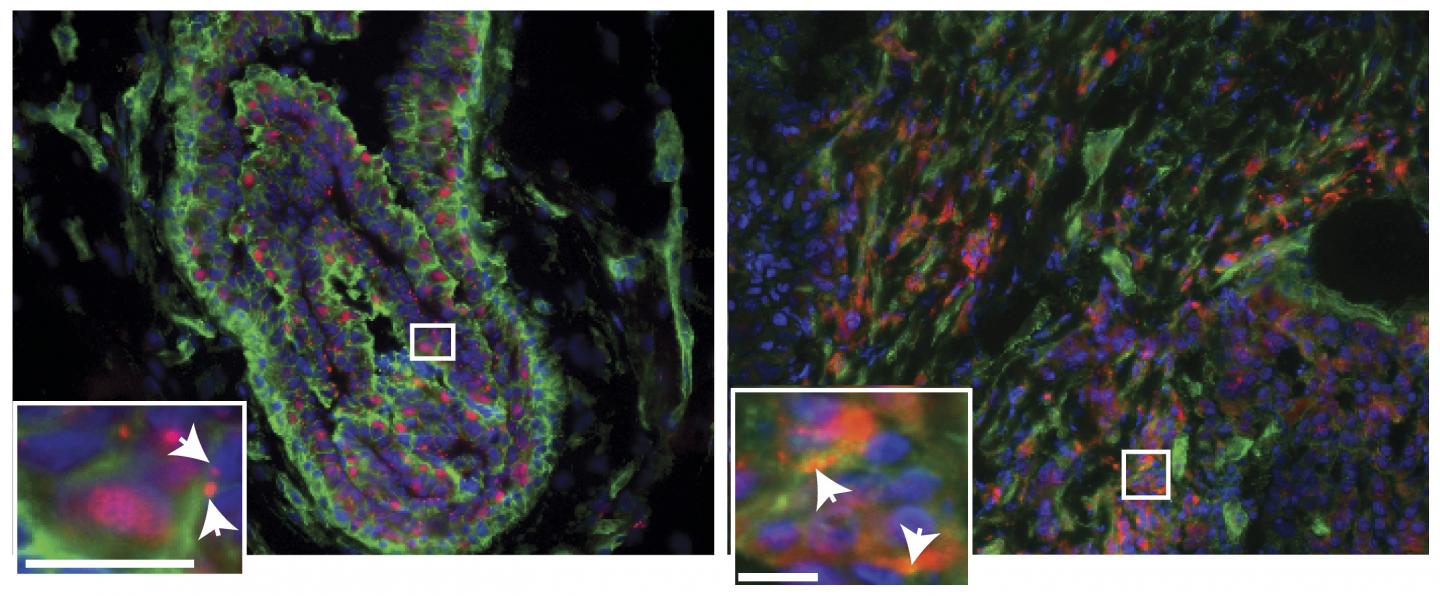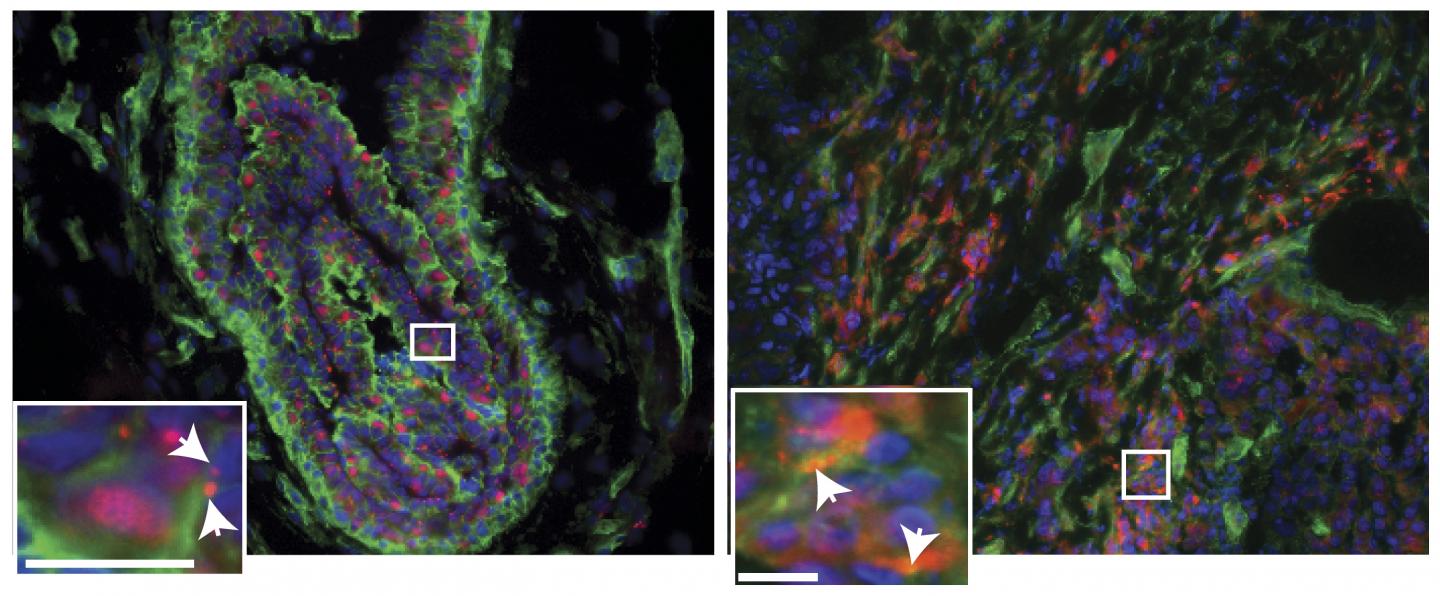
Credit: Sampayo et al., 2018
New research uncovers how a sticky protein called fibronectin promotes the activity of estrogen in breast cancer cells. The study, "Fibronectin rescues estrogen receptor α from lysosomal degradation in breast cancer cells," which will be published July 6 in the Journal of Cell Biology (JCB), was led by Rocío Sampayo, a PhD student in Dr. Marina Simian's lab at the Instituto de Nanosistemas, Universidad Nacional de San Martin and Instituto "Ángel H. Roffo," Universidad de Buenos Aires in Argentina. Together they show a novel mechanism of estrogen receptor signaling that is regulated by fibronectin. They found that exposure to fibronectin prolongs the activity of estrogen receptors in breast cancer cells.
The hormone estrogen plays a key role in the development of healthy cells and, in many cases, cancerous cells. Estrogen attaches to cellular estrogen receptors, which promote cell growth and survival. But too much estrogen receptor activity can cause cells to proliferate rapidly, leading to tumor growth. About 75% of breast cancers are considered estrogen receptor positive because estrogen causes those cancers to propagate, Sampayo notes.
As cancerous cells start to invade into surrounding tissue, they encounter the gluey fibronectin protein. "In the normal mammary gland, epithelial cells are not in contact with fibronectin," Sampayo explains. Fibronectin is part of the extracellular matrix, the meshwork of proteins and molecules that surrounds cells. In tumors, the production of this surrounding network often becomes unregulated. Previous research has shown that high levels of fibronectin and its receptor β1-integrin correlate with lower breast cancer survival, but it was not known why.
In the current study, Sampayo and colleagues discovered that fibronectin boosts estrogen receptors' activity in breast cancer cells. They found that when breast cancer cells are surrounded by fibronectin, estrogen receptors avoid destruction by lysosomes–cellular garbage disposal units–and can continue to drive cancer cell growth. "This would allow breast cancer cells to become resistant to common endocrine therapy drugs that target the receptor," Sampayo says.
Their research suggests that therapeutics that interfere with fibronectin's influence on the estrogen receptor could help treat drug-resistant breast cancers. This work also reveals how the meshwork of proteins surrounding tumors can influence cancer progression.
###
Sampayo et al., 2018. J. Cell Biol. http://jcb.rupress.org/cgi/doi/10.1083/jcb.201703037?PR
About the Journal of Cell Biology
The Journal of Cell Biology (JCB) features peer-reviewed research on all aspects of cellular structure and function. All editorial decisions are made by research-active scientists in conjunction with in-house scientific editors. JCB makes all of its content free online no later than six months after publication. Established in 1955, JCB is published by the Rockefeller University Press. For more information, visit jcb.org.
Visit our Newsroom, and sign up for a weekly preview of articles to be published. Embargoed media alerts are for journalists only.
Follow JCB on Twitter at @JCellBiol and @RockUPress.
Media Contact
Rory Williams
[email protected]
917-202-5787
@RockUPress
http://www.rupress.org/
Related Journal Article
http://dx.doi.org/10.1083/jcb.201703037





